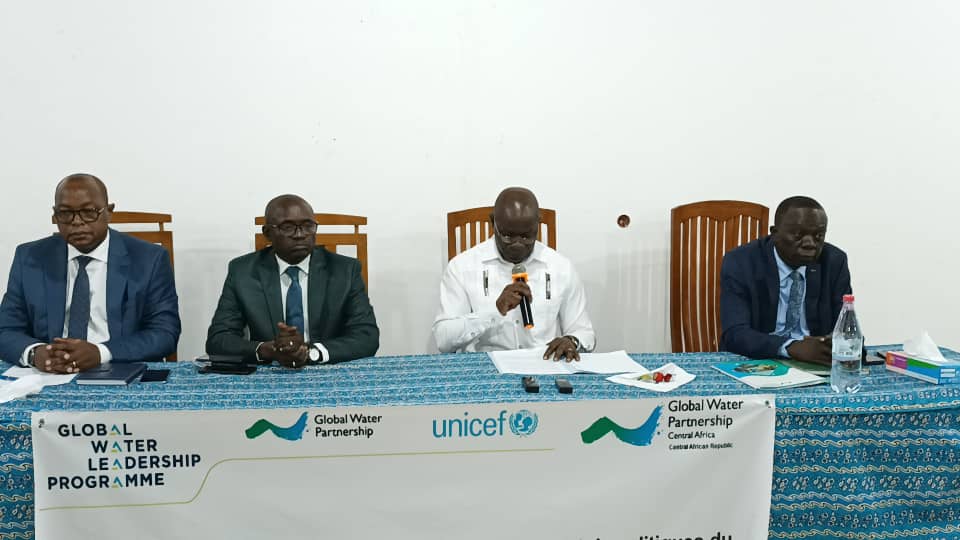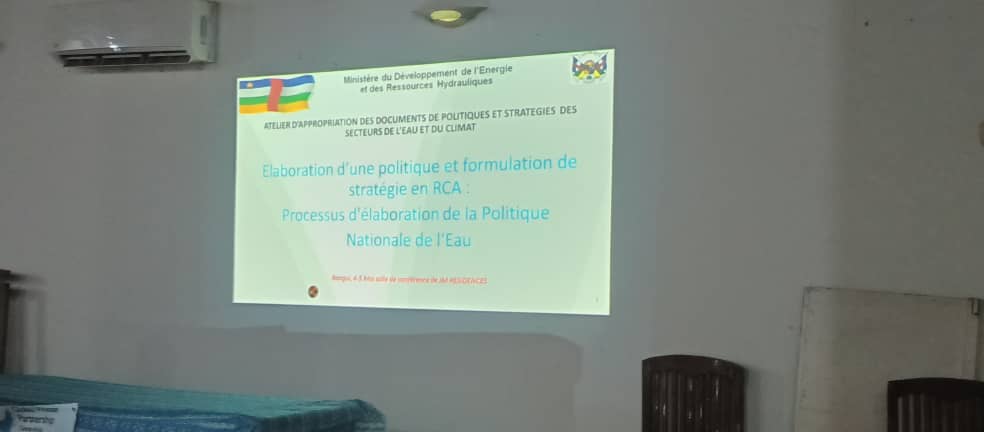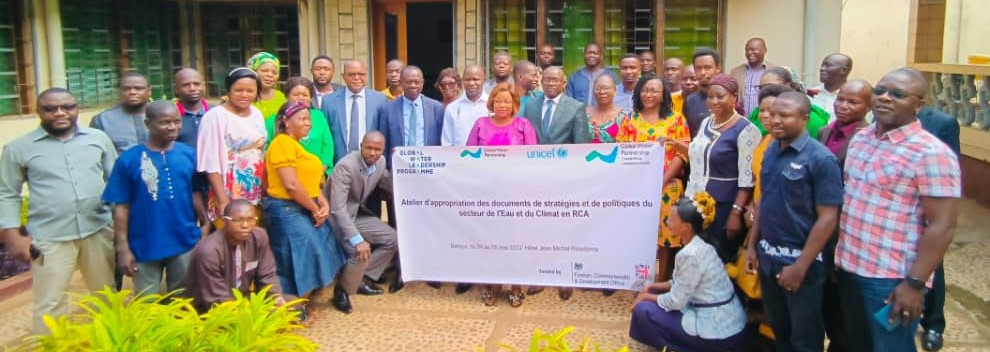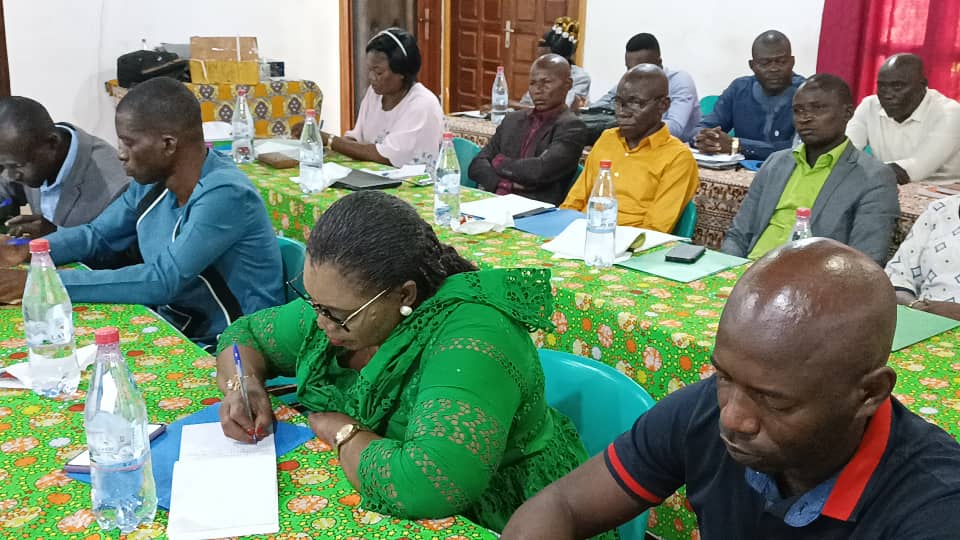The workshop, which brought together about seventy participants from government ministries, CSOs, GWP-CAf, and NGOs, was held as part of the Global Water Leadership in a Changing Climate (GWL) Program, which is being implemented in the Central African Republic by GWP, supported by UNICEF. The workshop, with the main objective of improving knowledge on these documents to facilitate implementation, is in response to a barrier identified by one of the four working groups set up in the first phase of the program: the weak application of existing texts and documents in the water and climate sectors.

While speaking at the opening ceremony, the Director of Cabinet of the Ministry of Water Resources, Mr. Gérard Zouguere Ouilikon, thanked the participants for their interest in promoting IWRM in a climate change context. He urged the stakeholders and working groups to be thorough in the identification of innovative and sustainable solutions to overcome the identified barriers to IWRM and climate resilience. The interactive workshop, which was also attended by GWP-CAf’s regional chair, Mr. Sylvain Guebanda, featured presentations on GWP’s mission by GWP-CAf’s regional coordinator, Djibrilla Mohamadou, GWL project progress report and next steps by the GWL project coordinator, Crésus Kodongo Ndrou, as well as presentations on four pre-selected documents in the water and climate sectors.

The National Water Policy adopted by the government in July 2021 was presented by the Executive Secretary of CWP-CAR, Mr. Sekou Gary. The ambition of the National Water Policy is, on the one hand, to create individual and collective awareness of the challenges related to water in the CAR context and, on the other hand, to promote more synergy and coherence in public and private investments as well as in the interventions of the different actors, including development partners.
The revised Nationally Determined Contribution (NDC) highlights the priority sectors for which resilience to climate change must be strengthened (agricultural and food security sectors, health, natural resource management, and infrastructure) to contribute to national cohesion and the stabilization of the country. The state of the implementation of the NDC engagements was presented by Mr. DJOKOBE Salomon. He highlighted that the NDC is in line with the objectives pursued by the government of the Central African Republic within the framework of the National Recovery and Peacebuilding Plan (RCPCA), the country's main strategic planning instrument.

The national chair of the CWP-CAR steering committee, Mr. Eric Foto, presented the National IWRM Action Plan, highlighting the major short- and medium-term challenges in implementing IWRM as well as the SWOT analysis of the strategy document. The main framework of the National Climate Change Adaptation Plan (Objectives and Guiding Principles, Priorities for Adaptation in Relation to Water Resources) was also one of the working documents.
After discussions, the participants engaged in group work to identify the priority interventions contained in the documents. The exercise consisted of collecting opinions on the understanding of the documents, initiatives, projects, and actions underway for the implementation of the National Water Policy. The next steps of the GWL program include the mapping of solutions to the identified barriers, the identification of financing options, and the drafting and launch of an inclusive response strategy aimed at bridging the gap between IWRM and WASH in a climate change context.

